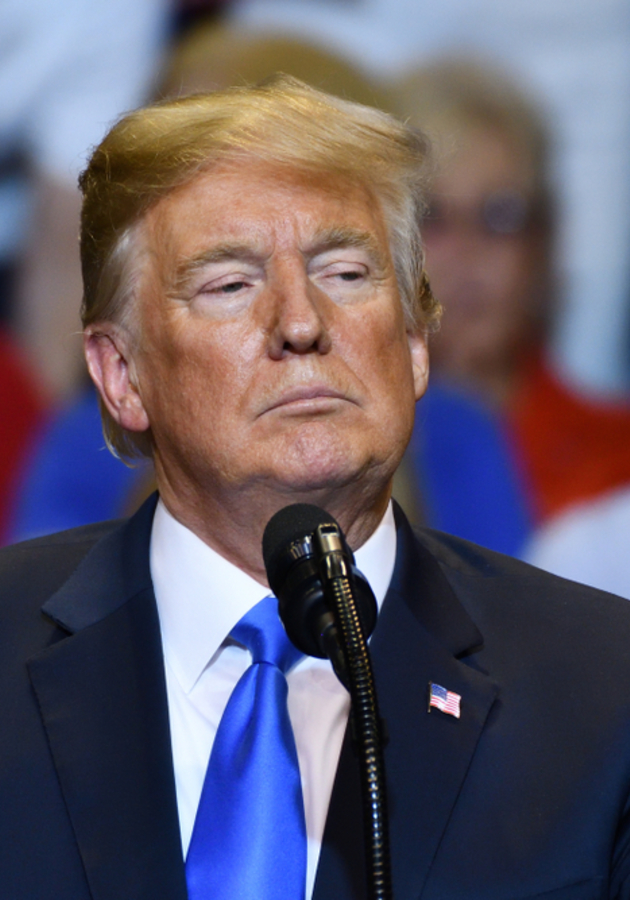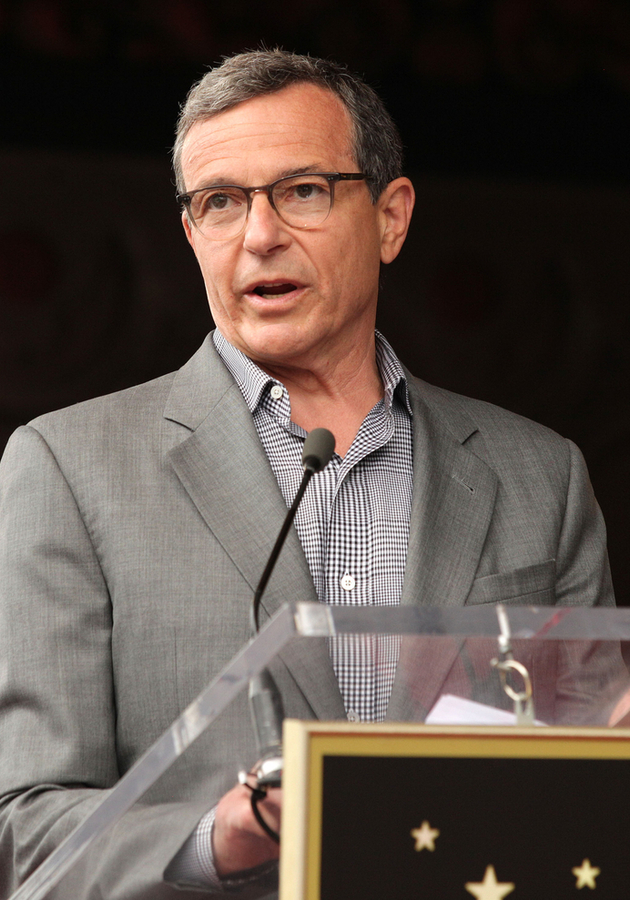Released to a storm of controversy amidst the coronavirus pandemic that has upended the United States and the world, “Rage” - by legendary Watergate journalist Bob Woodward - is an explosive book detailing Donald Trump’s presidency up to the outbreak of the pandemic in early 2020. It includes details from interviews with Trump and others on topics such as the pandemic, national security and foreign affairs issues, domestic issues, and drama among his staff. So, get ready to learn the details behind many recent top political stories!
“Let’s hope to god we don’t have a crisis”
Woodward begins “Rage” in the context of his previous book on Trump, “Fear,” published in 2018. After writing that book, which has a similar behind-the-scenes look at Trump’s administration and his unusual and erratic behavior for the office, Woodward summed up his time in office this way, “Let’s hope to God we don’t have a crisis.” Woodward also explains that although Trump did not want to be interviewed for “Fear,” he did participate in interviews for “Rage,” since he didn’t like how “Fear” made him look. Woodward says Trump also understands the unique effect he has on people, which inspired the title of his book: “I bring rage out. I do bring rage out. I always have. I don’t know if that’s an asset or a liability, but whatever it is, I do.”
At the time of publication, however, the COVID-19 pandemic has killed more than 200,000 Americans, sickened many more, and put millions of people into unemployment in the first six months alone. Much of these results due to conflicting messaging on preventative health measures such as social distancing and wearing masks. There has been a great deal of finger pointing about who is “responsible” for the catastrophic global spread of the virus, particularly towards China and its leader, Xi Jinping. But Woodward begins the book by asking: “Who was responsible for the failure to warn the American public of the coming pandemic? Where was the breakdown? What leadership decisions did Trump make or fail to make in the crucial early weeks? It would take me months to get answers to those questions.”
Since his writing of “Fear” led him to believe that any crisis would become something involving foreign affairs and national security, “where Trump had the least experience and took the greatest risks,” Woodward began his research for “Rage” before the pandemic began, by taking a closer look at Trump’s national security officials. Through this research, Woodward concludes that, “Trump’s handling of the virus - certainly the greatest test for him and his presidency, at least so far - reflects the instincts, habits and style acquired in the first years as president and over the course of a lifetime.”
Trouble in the White house: frustrated national security advisors
Woodward reviews the turbulent hirings and subsequent departures/firings of some of Trump’s most senior national security officials. Also central to the disharmony among many of the senior staff is Jared Kushner, Trump’s son-in-law and Ivanka Trump’s husband.
Former Secretary of Defense and retired Marine Corps General - James Mattis - broke a precedent by taking the defense secretary position, as there is a law forbidding anyone who has served in the military in the past seven years to take that position. Even still, Congress passed a waiver to allow him to accept the job. Former Secretary of State and former CEO of ExxonMobil Rex Tillerson was an attractive candidate for secretary of state because of his knowledge of leaders of adversaries such as Russia and China through his years in the oil industry. But, he was expecting to be considered for secretary of energy, which would have been more suitable, given his background. Tillerson included a condition that any disputes between him and the president would not be aired in public, which Trump agreed to. Mattis and Tillerson knew they were likely going to be working with a difficult boss, so they planned to have weekly meetings, based on an idea from the Clinton administration.
Dan Coats, a senator from Indiana, was chosen as director of national intelligence. Coats took the position with some hesitation, since he was worried about how Trump had created a in the Republican Party. He quickly became concerned with Trump’s behavior and disinterest in meeting with him, likely since Coats had mostly worked with Vice President Mike Pence. Coats struggled with the great responsibilities of the job and eventually became close with Mattis, since they were both dismayed about Trump’s plans to withdraw troops from Afghanistan and South Korea. This new friendship resulted in Coats becoming more distant from Pence, leading to his eventual dismissal from the administration.
Several of the top officials, particularly Tillerson, complained about Jared Kushner, Trump’s son-in-law and senior advisor, being given too much power and preventing them from doing their jobs. For example, Kushner was tasked with “resolving” the long-standing Israeli-Palestinian conflict in the Middle East, which would normally be the job of the secretary of state. Tillerson commented bluntly that what Kushner did was “nauseating to watch,” and focused too much on the economic, rather than the real issues, at hand in the conflict. The Prime Minister of Israel, Benjamin Netanyahu, also gave Kushner a video depicting President of the Palestinian National Authority Mahmoud Abbas ordering children to be murdered, which was likely doctored. But, Trump believed it to be real and, as a result, pulled aid to Gaza and the West Bank, and for Palestinian refugees. Additionally, Mattis ended up resigning in 2018 because he could no longer deal with Trump consistently going against his recommendations and putting troops in danger. Mattis, unfortunately, was ultimately correct when Trump ordered, against everyone’s wishes, the killing of Iranian General , a dangerous move that could have resulted in serious conflict.
In a somewhat telling move, Kushner told Woodward that the best book that describes his father-in-law is “Alice in Wonderland,” which suggests that Kushner knows that Trump is a crazy, stubborn, wandering leader. Despite this, Kushner said that he believed that Trump could handle the many challenges facing him.
National security and foreign affairs issues
Several issues involving some of the United States’ biggest adversaries, including North Korea, Russia, China, and Iran, came up quickly once Trump took office. The investigation of Trump’s possible dealings with Russia and Russian interference in the U.S. elections by Special Counsel Robert Mueller, while ultimately turning up very little, hung over his head and was a big story in the media for the first two years of his presidency. His impeachment, ultimately resulting in an acquittal by the Senate, also took up a great deal of time and energy in late 2019 to early 2020.
The fear with North Korea was their testing of nuclear missiles. While Mattis was taking the matter seriously as secretary of defense and a retired general, Trump handled it by sending provocative tweets about North Korea’s leader, Kim Jong Un. Trump would later fire Tillerson by tweet in 2018, replacing him with CIA Director Mike Pompeo, which resulted in North Korea releasing three American prisoners, a very positive step forward for the two nations. Trump and Kim eventually developed more of a relationship through an exchange of what Woodward calls “love letters,” which although fed Trump’s ego, did help improve tensions on the border between North and South Korea.
With Russia, much of the tension was around whether Putin interfered in the U.S. elections or not. Putin denied that this happened, which Trump believed, and put him in conflict with Coats as the director of national intelligence. This caused a major conflict between Trump and Coats as Trump wanted Coats to go outside his role and stop the FBI investigation into Russian interference. There was also the Mueller Report, which neither implicated nor exonerated Trump (though Trump quickly declared it “a complete exoneration.”) Trump gained more political strength while many of his associates ended up in prison. Trump ended up firing Coats, who had had a difficult time dealing with Trump from the beginning in 2019, likely due to the intelligence he had on Trump regarding both Russia and Ukraine, the latter of which led to Trump’s impeachment soon after.
The outbreak of COVID-19
Woodward’s revelations on what Trump knew and hid on the coronavirus pandemic have received widespread coverage in the press, due to their explosive nature. Trump’s comments to Woodward that he was aware of the severity of the virus received the most attention in the press.
Though there has been great disagreement between the Trump administration and CDC Director Dr. Robert Redfield and National Institute of Allergy and Infectious Diseases Director Dr. Anthony Fauci, one thing that was generally agreed upon was China’s unwillingness to cooperate in giving information on the spread of the virus. They attempted to send American scientists to China, but were not successful. Redfield and Fauci were beginning to worry that they were about to have a very serious problem on their hands. Trump ultimately decided to restrict travel from China to the U.S. in January 2020, without giving proper credit to Fauci, Redfield, and others. Meanwhile, many Republicans began to believe that the virus was a hoax by the “deep state” to sabotage Trump. Even as cases were beginning to increase and the first deaths were reported, Trump continued to downplay the risk, despite telling Woodward he knew that the virus was “more deadly than even your ‘strenuous flus’” - covering it up exactly as he accused China’s Xi (Chee) of doing.
Behind the scenes, however, many in the administration knew that the virus was going to be a huge problem, based on what was already happening in Asia and Europe. Fauci advised Trump to ban travel from Europe in addition to Asia since many of the cases in the US were being traced back there. But, Trump did not do that until March, at which point it was too late - the World Health Organization had already declared a pandemic. Much of the hesitation came from worries about the impact on the economy. Meanwhile, testing was a complete failure. Fauci, Dr. Deborah Birx, and Kushner got Trump to agree to put the economy on “lockdown” for 15 days with the aim of “flattening the curve.”
In addition to the pandemic, which has upended the world, protests for racial justice broke out all over the country in June 2020 after the killing of a black man, George Floyd, by a police officer in Minneapolis was caught on camera. Like the pandemic, Trump poured fuel on the fire on this as well. Trump insisted on “law and order,” even though the majority of protests were peaceful. He caused a great deal of outrage when he ordered that protesters near the White House be removed, including with tear gas, so that he could do a photo op holding a Bible in front of a church to appeal to his Evangelical base. Trump also insisted to Woodward that, other than Abraham Lincoln, he believes he has done the most to help the black community, a stance disputed by many.
Final Notes
After an exhausting whirlwind of interviews with Trump and many of his advisers - many of whom called Trump a threat to national security upon their departure - Woodward concludes that Trump is “the wrong man for the job,” in terms of president. This is hard to disagree with, considering that Trump seems to have no real goals, and does not act in the best interests of the country (evidenced by his complete bungling of the pandemic), but in the best interests of himself.
12min Tip
With the backdrop of Trump’s mishandling of various pre-pandemic issues of national security, his complete bungling of the pandemic despite numerous warnings, along with other missteps, Woodward (and many others) conclude that Trump is not at all fit for the presidency.





























